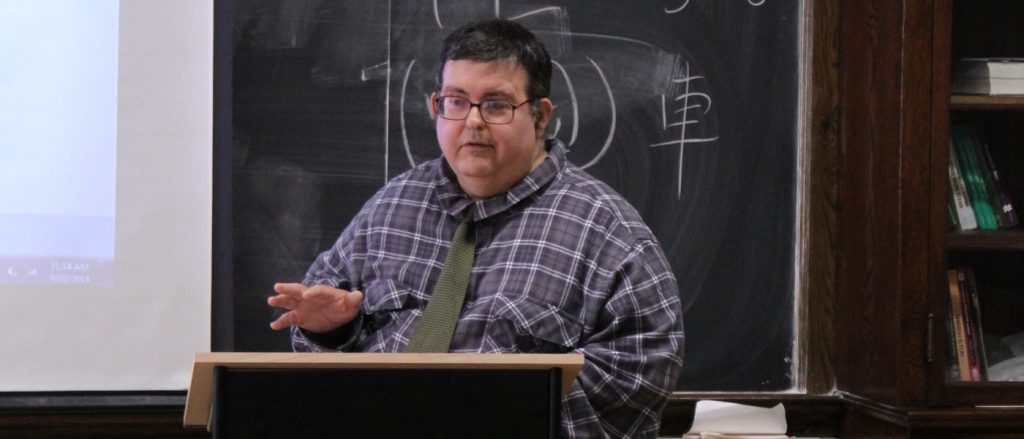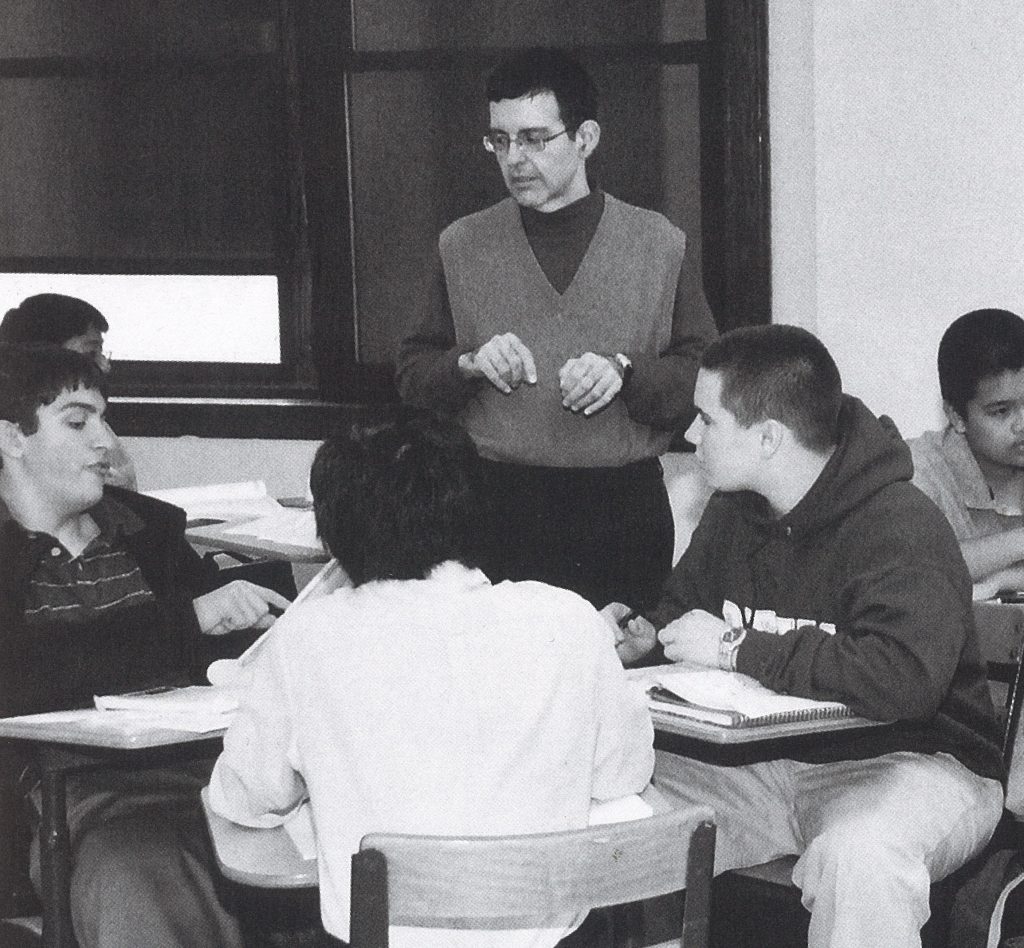Celebrating Mr. Pedro Acosta Upon His Retirement
This story appears in the Spring 2024 issue of Regis Magazine.
For more than two decades, Mr. Pedro Acosta has taught French, Spanish, and Mandarin Chinese to Regis students, but these are just a few of the seven languages he speaks. Indeed, Mr. Acosta, who is retiring this spring after 23 years of service to Regis, often engages with students outside the classroom in a multitude of languages, including ones not offered in the curriculum. And he does it all with a warm demeanor that encourages students to further challenge themselves in a new language.
Mr. Acosta joined the faculty in 2001, initially intending to teach just Spanish and French. But when Rev. Vincent Biagi, SJ, the principal at the time, learned of Mr. Acosta’s background in East Asian languages, he asked Mr. Acosta if he would like to teach Chinese as well. Mr. Acosta was a published translator of Chinese and had studied and taught the language for many decades. When he taught Regis’s first Chinese class in 2001, it became the first non-Western language offered to students. And for the better part of his tenure at Regis, he taught every student who took Chinese at each of the four levels, designing and redesigning the course curricula.
Mr. Acosta says that crafting Regis’s Chinese program from scratch was a “wonderful” experience. “I had taught Chinese in other schools, but never in a place like Regis where I actually got to create the curriculum,” he said. “So it was very enjoyable.”
In 1983, while he was a graduate student studying East Asian languages at Yale University, Mr. Acosta began his teaching career at East Hamden High School in central Connecticut. He later returned to his home state of New Jersey to teach Spanish and Chinese at Pope John XXIII Regional High School, before moving to Oak Knoll School of the Holy Child, where he added French to his teaching load. Taking Mandarin Chinese classes may seem like a daunting task for incoming students unfamiliar with the language, but courses have maintained a consistent enrollment under Mr. Acosta’s stewardship. “Yes, it’s true. Chinese is harder,” said Mr. Acosta. “The students work harder to get what they need to get. And I as the teacher work harder to help them get where they need to get. But it’s a good thing. If you really want to know something, you have to work at it, and that’s something Regians know very well.”
Mr. Acosta has spent many years working with the Chinese-speaking community in New York City, including as an English language teacher in Chinatown and Elmhurst. When it comes to the diversity of spoken languages in New York, “you get a little bit of everything,” Mr. Acosta said. “Go to a subway and sit down and perk up your ears. What are you going to hear? Different languages. And you’ll see people reading in different languages. It’s normal here, but you don’t see that in most cities.”
Regis and the many students who’ve passed through his classrooms over the years owe much to Mr. Acosta, but he reflects on his tenure with humility. “If there’s anything I truly enjoyed about Regis, even more than creating the Chinese program, it’s simply working with good students,” he said. Teaching at Regis “is really a worthwhile experience. It certainly is for me, dealing with students who like to learn and work well not only with their teachers, but with each other too.”
Mr. Acosta leaves a language department that will continue to bear the traces of his service, and his fellow departmental faculty are quick to praise him for all he’s done inside and outside the classroom.
“Pedro is more than just a colleague; he’s a mentor and a true friend,” said Ms. Arianna Huergo, chair of the Language Department. “I can’t even begin to thank him for everything he has done for me. He changed my life, and I’m sure I’m not the only one whose life he has changed.”
In 2009, Mr. Acosta won the Patricia Hannon Ignatian Educator Award, recognizing his passion in the classroom and his wider commitment to the education of his students.
Said Ms. Huergo: “We affectionately call him the ‘Google of languages’ because of the passion and incredible knowledge he shares with everyone. We are incredibly sad to see him go.”
Read more Regis news

